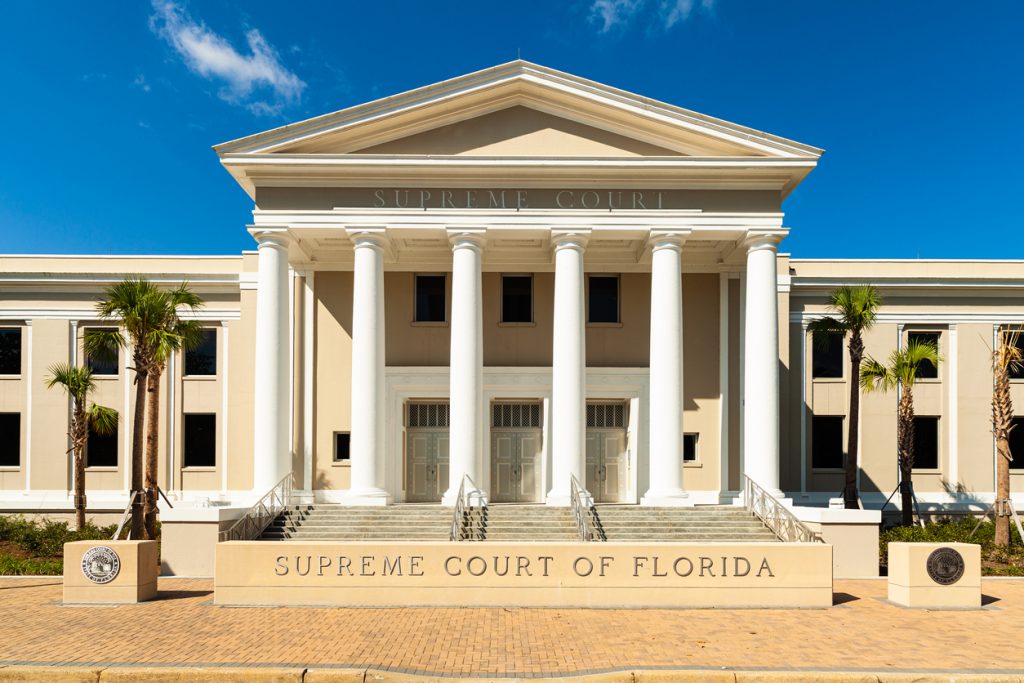Karen D. Fultz-Robinson, Esq. and Johanna Sheehe, Esq. of Sheehe & Associates, P.A., give Lawyer Monthly an analysis of the state of AOB legislation in Florida.
Assignment of benefits agreements has been the bane of the property insurance industry’s existence because of perceived fraud, overcharges, and resulting litigation leading to increases in insureds’ premiums and disgruntled homeowners. Recognising these abuses, state legislatures and governors across the country are taking action to protect insureds from unscrupulous practices and slow the flood of lawsuits related to these assignments. The National Association of Mutual Insurance Companies sets forth its support of legislation which prevents abusive assignment of benefits practices here.
In the State of Florida, the crux of the discontent surrounding litigation involving assignment of benefits (“AOB”) claims is Florida Statutes, Section 627.428(1), a one-way attorney fee statute which awards attorneys’ fees to an insured, or their assignee, when they prevail against an insurance company. In 2019, the Florida Legislature passed Florida Statutes, Section 627.7152, which attempts to protect insureds and curb perceived abusive tactics and exploitation of the attorney fee statute by limiting an assignee’s ability to recover attorneys’ fees. In the wake of its enactment, litigation has swirled around the question of when the new statute applies.
What is an assignment of benefits?
In the homeowners insurance industry, assignment of benefits agreements arise when subsequent to a loss, an insured signs an agreement with a contractor wherein the contractor agrees to perform certain work and the insured agrees, among other things, to assign the right to receive his or her insurance proceeds (the benefits) to the contractor. In other words, the insurance company will be directed to pay any insurance proceeds directly to the contractor, instead of the insured, for work performed or to be performed at the insured’s premises.
In the wake of its enactment, litigation has swirled around the question of when the new statute applies.
Disputes arises when the contractor demands payment from the carrier, but the amount billed is considered excessive because, for example, the work was not performed by the contractor, the work is deficient (according to the insured), or the insured elects to not retain the contractor to perform the work originally estimated. Some insurance companies take steps to combat and prevent perceived injustice to its insureds, such as adding the insureds’ names to the payment check to ensure the insured is aware of when payments were issued to the contractor, denying payment if the contractor failed to produce proof of workmanship, or conducting line item deletions if billing statements included inappropriate charges such as mortgage processing fees or supervisory costs that were not justified or are contrary to the coverages made available by the applicable policy. In response to the insurance companies’ activism, contractors have initiated litigation throughout the state of Florida against insurance carriers to collect purportedly outstanding expenses and invoices.
The cost of protracted and voluminous litigation financially impacted the insurance industry which trickled down to its customers by way of an increase in premiums (this report details the exponential growth of AOB litigation leading to legislative reform). In an effort to obtain relief, the insurance companies turned to the legislature for help. After years of lobbying on both sides of the political aisles, in July 2019, Florida enacted Florida Statutes, Section 627.7152 which was the first time in years when the AOB saga was reeled in and an attempt was made to take control of the runaway train in the real property insurance arena.
In terms of application, subsection 13 of the statute states that it applies to “an assignment agreement executed on or after July 1, 2019.” However, the Governor expedited the enactment of a portion of the statute, subsection 10, making that subsection effective on May 24, 2019 through House Bill 337. This subsection is specifically related to the entitlement to and recovery of attorney fees and provided the sole method for an assignee’s recovery of attorney fees, in place of Florida Statutes, Section 627.428. Section 627.7152(10) states, “[n]otwithstanding any other provision of law, in a suit related to an assignment agreement for post-loss claims arising under a residential or commercial property insurance policy, attorney fees and costs may be recovered by an assignee only under s. 57.105 and this subsection.”
[ymal]
In the spring of 2019, AOB lawsuits skyrocketed in anticipation of the enforcement date of the new statute. One of many questions that remain hotly contested is whether assignees are entitled to an award of their attorney fees in accordance with Florida Statutes, Section 627.428 for suits filed after May 24, 2019. There is a fundamental disagreement as to when the new statute applies. Some insurance carriers maintain that any suit filed after May 24, 2019 is subject to the new statutory fee provisions set forth in subsection 10, which became effective on that date through HB 337. Assignees disagree and argue that pursuant to subsection 13, the statute cannot apply retroactively to assignments executed before July 1, 2019. The tension between subsection 10 and subsection 13 of the statute is currently playing out in courtrooms across the state.
Adding to the inquiry regarding retroactivity, several courts have echoed constitutional due process concerns raised in Menendez v. Progressive Express Ins. Co., 35 So. 3d 873, 878-79 (Fla. 2010) and determined that the operative date is not the date the suit was filed or the assignment was executed, but the date that the insurance policy was issued. These courts have concluded that the award of attorneys’ fees will be considered pursuant to the new statute (627.7152) only in cases involving insurance policies that were issued and/or in effect on or after July 1, 2019. See, e.g., Procraft Exteriors, Inc v. Metro. Cas. Ins. Co., No. 219CV883FTM38MRM, 2020 WL 5943845, at *3 (M.D. Fla. May 13, 2020), JPJ Companies, LLC v. Hartford Ins. Co. of the Midwest, 9:19-CV-81696, 2020 WL 264673, at *1 (S.D. Fla. Jan. 17, 2020), reconsideration denied, 9:19-CV-81696, 2020 WL 1043798 (S.D. Fla. Mar. 4, 2020); Apex Roofing and Restoration v. United Prop. & Cas. Ins. Co., No. 19-CA-3760 (Fla. Lee County Cir. Ct. Oct. 15, 2019).
The legal landscape related to AOB litigation remains in a quandary despite the Florida Governor’s direct intent to accelerate the attorney fee section of the new statute. This issue will be closely followed as litigation regarding insurance policies and AOB agreements pre-dating May 24, 2019 and July 1, 2019 continue to work through the courts.





















